If we want to base our beliefs on evidence, we need good information. Reasoning and personal experience are good and necessary, but why go it alone?
I’ve found it really helpful to read books by people who know more than I do. Here’s 10 of the best (in my opinion!)
I’ve set them out from the easiest to read through to the “heaviest” to give you a guide about the level of each book.
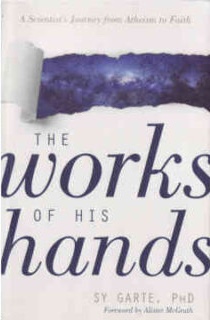
The Works of his Hands. Sy Garte
Biochemist Sy Garte was raised in an atheist family, but his love of science led him to convert to Christian belief. This book is the story of his journey, but it’s not just an autobiography. Rather, he relates how his exploration of science led him to question one by one different aspects of his worldview until Christian faith became the most logical choice. But it also led him to some interesting takes on conventional Christian beliefs.
So the book gives us insights into scientific matters such as the irrational world of modern physics, complexity, animal and human life and evolution, the origins of the universe, life and consciousness, and the limits of science. In the second half of the book he examines conventional Christian doctrines from a scientific viewpoint, and has some interesting thoughts on love and freedom, science and faith, evolution and Christianity and some of the difficult questions he faced as a new Christian.
Absolutely worth reading!
Jesus: A very short introduction. Richard Bauckham
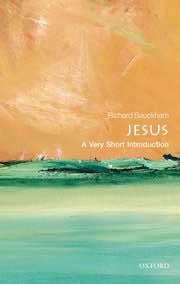
If we want to know about the Jesus of history rather than what Christians often believe about Jesus, we need to check out what reputable historians have concluded.
This short (125 small pages) book by an eminent British historian gives a brief but thorough summary of what historians have concluded we can reasonably know about Jesus based on good historical evidence.
I believe this is definitely the best introductory book about Jesus that I know about.
How the Bible Actually Works. Peter Enns
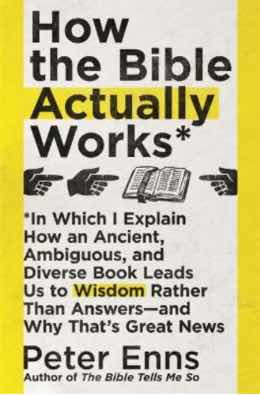
Christian claims about the goodness of God are often countered by pointing out what seems to be less than loving behaviour by Yahweh in the Old Testament. But modern arguments on either side are generally based on a view of the Bible that isn’t supported by the evidence
Old Testament scholar Peter Enns outlines a different view of the Bible – not some perfect book dictated by God but a response by the Jewish (and a few other) people to their interactions with God and the world around them. Often the Old Testament presents more than one view as the Israelite people worked their way through issues. As they learnt more, they adjusted their teachings and the texts. As a result, the Bible, he says, helps us gain wisdom about how to live and relate to God rather than fixed rules.
This view would be anathema to many conservative Christians, but Enns shows that it makes more sense of the well-known difficulties in the Old Testament. A very readable and sometimes humorous coverage of an important and vexing topic.
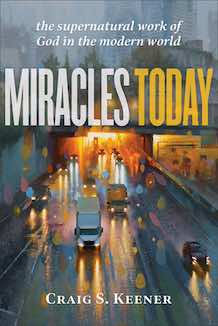
Miracles Today. Craig Keener
New Testament scholar Craig Keener became interested in modern day miracles because of his experiences when visiting Africa, and because he wanted to test the common assumption in New Testament scholarship that miracles go against normnal human experience.
He says studies show that hundreds of millions of people today report experiencing or observing a healing miracle after prayer to the Christian God. Of course he knows not all reports of miraculous healing are reliable and most cannot be verified. But he recounts many stories just to show how widespread they are. But he also shares accounts where there is good medical evidence, reliable witnesses and even video footage.
If only a small percentage of these accounts are true, then it is strong evidence of the Christian God.
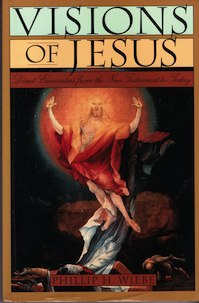
Visions of Jesus. Phillip Wiebe
Philosopher Phillip Wiebe has documented many people’s accounts of spiritual experiences, and has found that visionary experiences are more common than we might expect. In this book (now available in an updated version) he relates what he learned in interviews with 30 people from his local area in Canada, then examines how these experiences might be explained.
There are stories of non-believers who were converted through visions of Jesus, sometimes including divine healing, and others where the vision was seen by more than one person. He investigates several different explanations, including supernatural, religious imagination, pathological (i.e. caused by a disease) and psychotic (i.e. caused by abnormal brain functioning that blurs reality). He concludes no single cause can explain them all, and some may well be “genuine religious experiences”.
Honourable mention: J Hinman. The Trace of God. Not always well-written, but packed with good research into mystical experiences.
Making sense of God. Timothy Keller

The late Tim Keller spent a lot of time discussing faith with thoughtful New Yorkers of all beliefs and none. He observed that many people have negative experiences and perceptions about Christian faith that make it harder to ever believe.
He says: “Believers and nonbelievers in God alike arrive at their positions through a combination of experience, faith, reasoning, and intuition.” So in this well-researched book, he analyses life questions: meaning, satisfaction, freedom, identity, self, hope, ethics and justice, and argues that christian belief makes “more sense of a complex world and human experience” than do secular worldviews”.
Honourable mention: Nancy Pearcey. Finding Truth
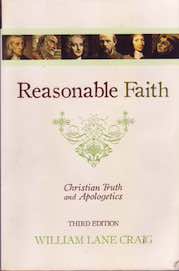
Reasonable Faith. William Lane Craig
There’s a lot of books around about arguments and reasons for God’s existence, but I think this is the best and most thorough. Craig is a well qualified philosopher, a proven debater, a thorough researcher and an excellent writer.
After some introductory chapters on faith, religious knowledge and purpose he discusses:
- some of the main theistic arguments: two versions of the Cosmological argument, the Teleological or Design (“fine-tuning”) argument, the Ontological argument and the design argument;
- the issues relating to historical knowledge, especially as they relate to the life of Jesus and Christian belief in Jesus’ divinity and the accounts of the resurrection;
I don’t agree with some of Craig’s conservative faith views, and some of his science may need updating (a lot has happened in the 16 years since this book was published). But otherwise this is a throrough and informative discussion of these arguments.
Honourable mention: Alvin Plantinga. Where the Conflict Really Lies.

Jesus of Nazareth. Maurice Casey
The late Maurice Casey was a New Testament historian and non-believer who fiercely critiqued more dogmatic believers and unbelievers alike. As an unbeliever, he didn’t believe in the supernatural, and so there are conclusions in this book that I disagree with.
Yet I find myself referring to it again and again because of his insights into the Aramaic language that Jesus spoke and the Jewish culture and religion of the day. Casey concludes that the first 3 gospels are useful historical documents, Jesus did perform miracles (but by natural or “folk” means), and the disciples did see visions of Jesus (even though Casey doesn’t believe Jesus was really resurrected).
A Fortunate Universe. Geraint Lewis & Luke Barnes
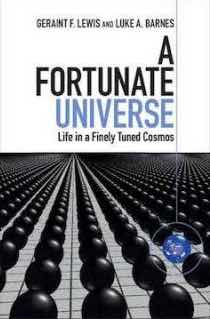
Two astrophysicists, one an atheist the other a theist, present the latest information on the so-called fine-tuning of the universe – the scientific fact that of all the possible universes allowed by theoretical physics, an orderly universe with human life like ours is extremely rare and thus unlikely.
After presenting the scientific information in a lively and at times humorous manner, they discuss the implications, including the argument that God is the best explanation – on which, unsurprisingly, they disagree.
The Resurrection of Jesus. Dale Allison Jr
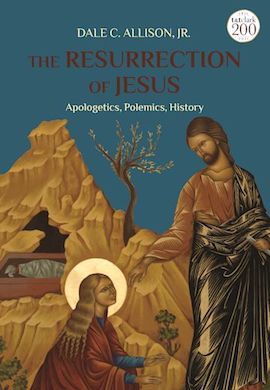
Dale Allison is a very rigorous and cautious historian. He is an unconventional Christian whose belief is based on personal experience, and he is committed to assessing the historicity of the resurrection of Jesus with an open mind. He takes nothing for granted and requires clear evidence before accepting anything as true. In this he is a true sceptic, questioning both belief and non-belief.
After detailed analysis of the gospel accounts he concludes that the historical evidence supports six facts as being more likely than not: Jesus was buried, his tomb was later empty, his disciples saw visions of him, Jesus had predicted his resurrection, his disciples began preaching about the resurrection very soon after and these factors were the basis for the early Christian belief in the resurrection. But, he cautions, all conclusions can be reasonably contested because “the accounts of the resurrection are, from a historian’s view, very dim candles.”
The second half of this thought-provoking book is devoted to considering other paranormal phenomena and the arguments presented by Christians to strengthen the case for the resurrection and the counter arguments by sceptics – and finds both sets of arguments have significant weaknesses. So his historical conclusions remain, uncertain, but more likely than not.
Enjoy!
I hope you find something here that appeals and is helpful.
Main photo by Pixabay.



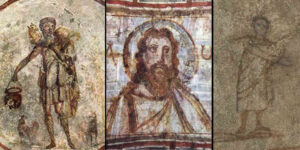

Hi Eric. Just read you article about Jericho
Very well constructed.
I too have been reading the archaeology.
Esp Finklestein, Naamaan, Dever et al.
There is no evidence that Joshua conquered any city except possibly Hazor and that is dubious. We have to reckon with a much bigger issue. These stories are likely written 1000 years after the event, relying on cultural memory.
Recent research suggests that biblical Judaism took hold in the 2 or 3 centuries BC. There was no biblical Judaism in Elephantine or in Babylon.
The southern kingdom is responsible for most of the OT. Their writing had a strong bias against the Northern Kingdom ( not one King gets approved by the Deuteronomistic writers) . Much of the Pentateuch and Drt history was written during the Persian and later times.
They were not historians, they had no word for history and the writers, Joshua to Kings, were “former prophets” not historians.
Most academic scholars regard these stories as fictional history (pace Robert Alter).
Cheers
Vic
Thanks Vic, I found Dever’s book “Beyond the Texts” to be quite revelatory about social and religious beliefs in Judea during the monarchy – for example, that the archaeology of religious objects in homes indicates they weren’t monotheistic to start with and fell, but slowly moved from polytheism towards monotheism over time.
Dever’s conclusions then affect how we see the Exodus and Jericho too.
I’d be interested to read a bit about your statement: “they had no word for history”